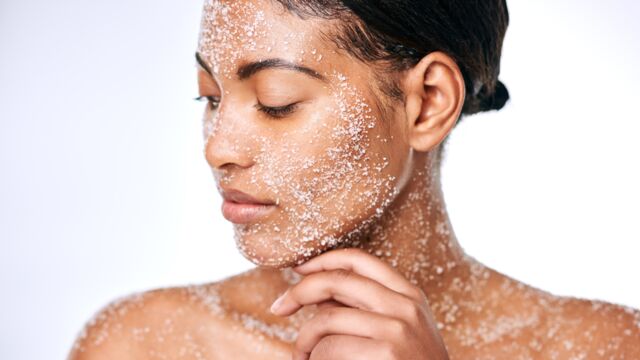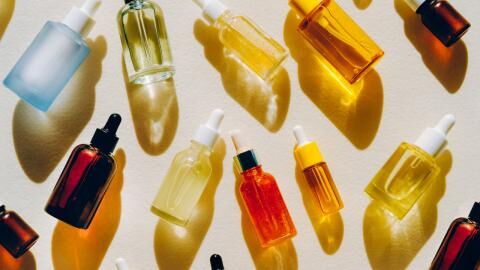Let's throw it back to the time in high school when we thought that Saint Ives's apricot scrub was the best thing on the planet. How shocked we were when we discovered that the walnut shells used actually caused more harm than good. We couldn't have dropped that product faster.
Discover our latest podcast
Many physical exfoliants can be harmful to the skin
Homemade scrubs and masks with sugar, salt or coffee grinds feel like they're making your skin squeaky clean but, in fact, they could be creating little micro-tears on the surface of our skin. This is because the pieces used to exfoliate have sharp, non-uniform edges that scratch at your cheeks. Coupled with a harsh application, these tears could strip away the skin's moisture barrier.
When your skin's moisture barrier is compromised, your skin could become overly dry and even produce a lot of oil to compensate. It could also lead to redness and irritation. Say hello to acne.
However, some people with particularly oily skin may still feel the need to physically exfoliate, getting help to really clean out those pores. The best way to do this is with a rice polish or a rice-based exfoliant. In products like these, the rice is ground into a soft, fine powder which, when combined with water will still scrub the face without the risk of damage. Nevertheless, it is still important to keep physical exfoliation to about once or twice a week.
Remember, if you suffer from sensitive skin, stay away from physical exfoliants, especially those with essential oils and perfumes as they can cause irritation.
Those who suffer from severe acne or other annoying skin problems will opt to go to a dermatologist or beauty therapist for what is called microdermabrasion. This is the mechanical process of shaving the dead skin off the face. Any peach fuzz and facial hair will come off during this time too, making foundation way easier to put on.
Is chemical exfoliation the answer?
The word 'chemical' might make the concept sound a bit intimidating but this type of exfoliation requires minimal effort and is very beneficial to the skin. Chemical exfoliants can also be very cheap. Acids such as lactic acid and AHA/BHA's can be found by brands like The Ordinary or The Inkey Listfor less then £10 each.

The trick is to apply a few drops after cleansing and just layer any serums, oils and moisturisers over top. The acids help to dissolve away dead skin which can lighten up any dark discolouration and help to reduce inflammation. All this without disrupting the skins natural moisture barrier.















